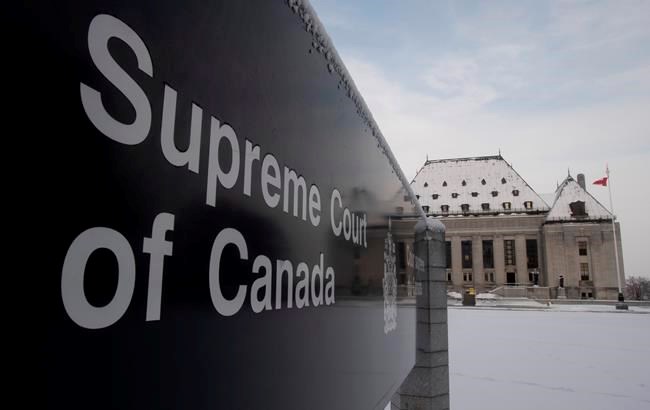OTTAWA — Police breached a Quebec man's constitutional right to counsel by undermining the advice given by his lawyer, the Supreme Court of Canada has ruled.
The unanimous decision came Friday in the case of Patrick Dussault, who was arrested in 2013 for murder and arson in Gatineau, Que.
Dussault spoke by telephone to a lawyer who offered to come to the police station, as he felt the accused did not understand his advice. The lawyer told Dussault not to talk to anyone in the meantime.
Police later called the lawyer to tell him he would not be permitted to meet with Dussault. The lawyer turned up at the station anyway, but police did not allow him to see his client.
The lawyer eventually left to tend to family matters, leaving behind a handwritten note that said he had only partially instructed Dussault on his rights, and that he wished to meet with him before he was interrogated. He said he would be available that evening.
Police subsequently told Dussault, who had been placed in a cell, that an officer was ready to meet with him.
Dussault asked whether counsel had arrived, only to be told the lawyer was not at the police station. During the ensuing interrogation, Dussault made an incriminating statement.
Dussault pleaded guilty to the arson charge, but at his murder trial he was unsuccessful in trying to have the incriminating statement he made to police excluded from evidence on the basis he was denied his charter-protected right to counsel.
Dussault was convicted of murder but the Quebec Court of Appeal allowed his appeal, set aside the guilty verdict and ordered a new trial.
Writing for the Supreme Court, Justice Michael Moldaver noted that an accused person does not have a right to obtain, and police do not have a duty to facilitate, the continuous assistance of counsel. However, there are exceptions to the general rule.
These include reason to believe the first information provided was somehow deficient — for instance, if police undermine the legal advice.
"A detainee’s confidence in counsel anchors the solicitor-client relationship and allows for the effective provision of legal advice," Moldaver wrote.
When the police undermine a detainee’s confidence in counsel, the legal advice the lawyer has already provided may become distorted or nullified. As a result, police are required to provide a new opportunity to consult with counsel.
Moldaver said he was satisfied the police conduct led Dussault to believe that an in-person consultation with counsel would take place, and that the lawyer had failed to come to the police station for that meeting.
This effectively undermined the legal advice provided to Dussault on the phone, and triggered the duty of police to provide the accused with a second chance to talk to a lawyer, Moldaver wrote.
"The police failed to discharge that duty and, in doing so, breached Mr. Dussault’s right to counsel."
This report by The Canadian Press was first published April 29, 2022.
Jim Bronskill, The Canadian Press




